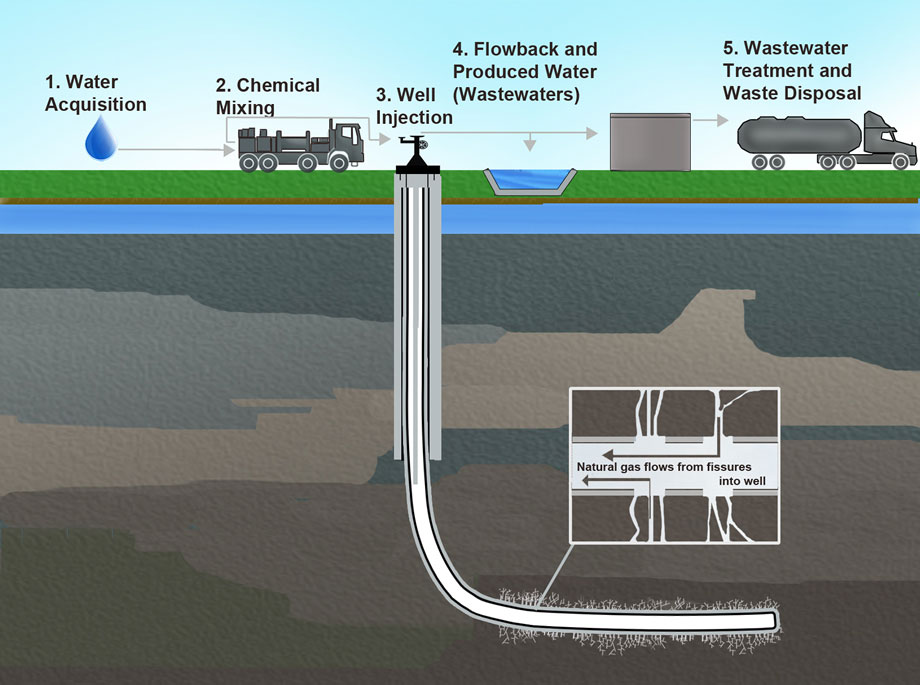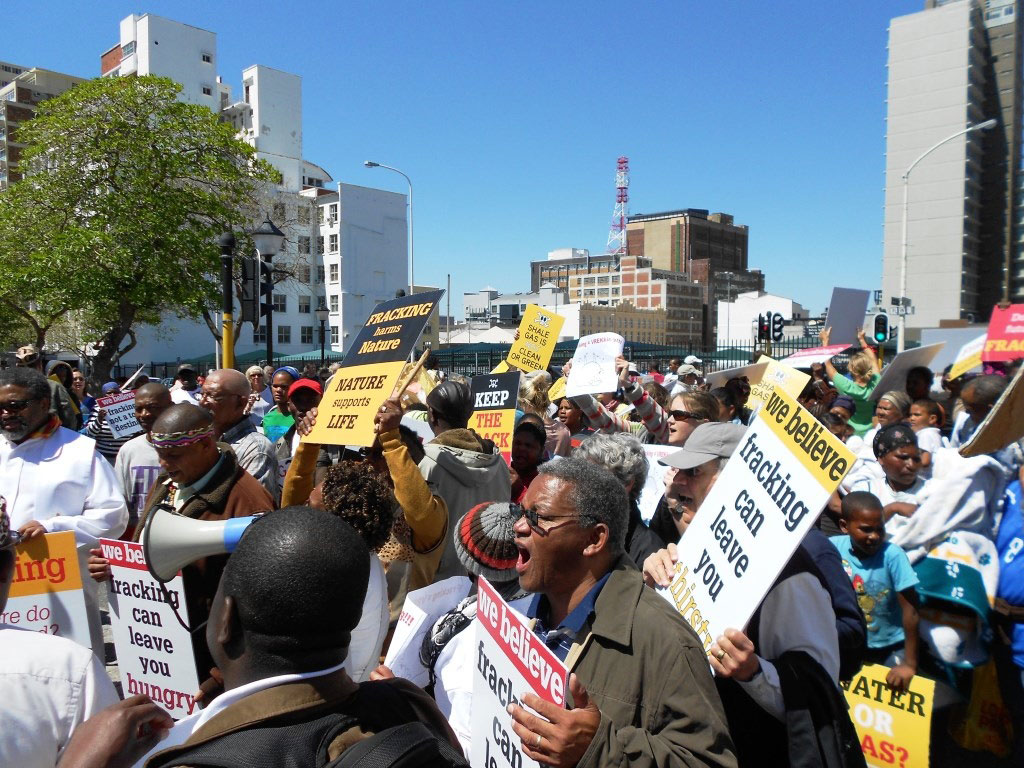What is fracking?
Hydraulic fracturing is the process of forcing natural gas or oil from layers of shale rock deep below the earth’s surface.
Wells are drilled 5 kilometres deep into the ground and then turned horizontally for 2-3 kilometres. Millions of litres of water, mixed with sand and chemicals, are injected into the wells at high pressure. The shale is cracked open and sand and liquid are forced into the tiny cracks. Natural gas, trapped in the rock, is released and returns to the surface with the fracking fluids.
Not a solution to climate change
Most shale gas is methane which burns ‘cleaner’ than coal. In spite of this, fracking is not a solution to climate change because methane is still a fossil fuel. It is a greenhouse gas which traps heat in the atmosphere 20 times more effectively than carbon dioxide (CO2).

How will it affect us?
Employment and livelihoods
The promise of local jobs that fracking will create has been grossly exaggerated. While improved infrastructure will be needed, actual fracking jobs will be short term, and mostly done by external specialists.
Water
South Africa is a water-scarce country. Fracking is likely to have a serious impact on the water catchments in all the areas where it takes place. Water used in the fracking process is mixed with a cocktail of chemicals which fracking companies are reluctant to name because some are highly poisonous. Some are known to persist in the environment, accumulating in food chains posing risks to human health and ecosystems.
Pollution and contamination of water will have wide-ranging impacts on agriculture and human livelihoods that are dependent on the land.
Health
There is growing evidence that fracking can be hazardous to human and animal health. Apart from methane in the atmosphere, ground and surface water can be contaminated with methane, arsenic, radioactive minerals, a variety of metals, fracking chemicals and salty brine. Some fracking chemicals are carcinogenic (they cause cancer). On-site, workers must be protected from silica dust, which causes silicosis, an incurable and fatal lung disease.
Our constitutional rights
We have a constitutional right to clean water, clean air and a healthy environment. Fracking is neither clean nor green.
We call on decision makers to be ethical. When making choices about energy, they must consider the wellbeing of people, the planet and future generations rather than short-term financial gains.
In spite of the promise of economic growth and job opportunities, the human rights and environmental violations of multinational oil companies are well documented. South Africa has been promised a low carbon economy and green jobs. This must mean an energy future free from dependence on fossil fuels.








